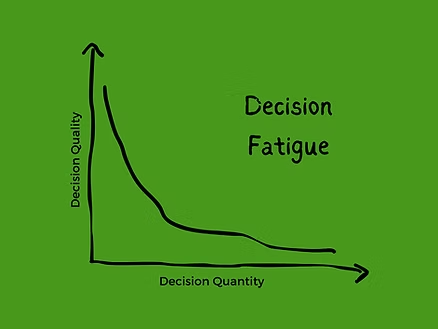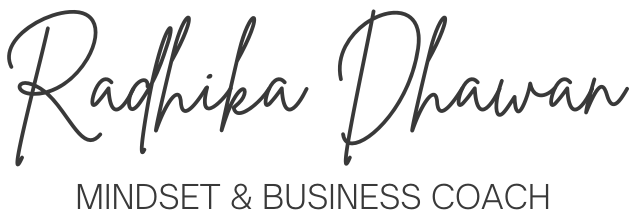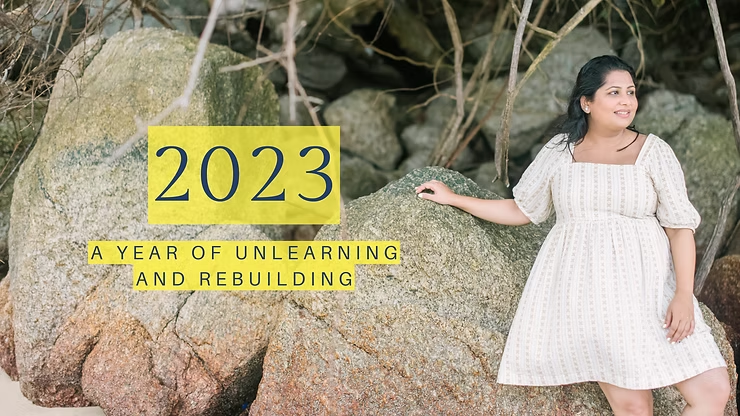Decoding Decision Fatigue: Understanding the Exhaustion of Choices and How to Overcome It
“Let Radhika decide what to order. Let’s not stress too much. She’s really good at this.”
While yes, more often than not I order a great meal, how many of you are guilty of going out to dinner after a long day of work and just not being bothered to decide what to order? Leaving it to someone else?
Have you ever felt exhausted after making a lot of decisions in a day?
If so, you may have experienced decision fatigue.
"Decision Fatigue is a term coined by social psychologist Roy F. Baumeister, which refers to the tiredness and exhaustion that people experience after making a series of decisions.. "
It’s the mental exhaustion and reduced willpower that results from the continuous strain of making decisions, and it can affect anyone, from business owners to regular individuals.
Even micro decisions like what to wear or eat for breakfast can put a lot of stress on the mind and drain our energies.
Fun fact: you make most of your daily decisions subconsciously!
According to research, by the time the average person goes to bed, they’ve made over 35,000 decisions and all of those decisions take time and energy, and certainly can deplete us. No wonder we can feel overwhelmed and exhausted.
Daily decisions that contribute to decision fatigue can range from major business decisions such as hiring new employees or investing in new technology, to small decisions like what to have for lunch or which colour pen to use. Even the act of deciding whether to reply to an email immediately or later can add to your decision-making load.

It’s important to understand that our capacity for decision-making is finite. The brain can only handle so much before it needs a break.
In fact, there is research shows we tend to make the best decisions in the morning when our mental energy is at its highest. As the day goes on and we make more decisions, our willpower and ability to make good decisions can decrease.
This is why most productivity experts advise you tackle the big, most important or daunting tasks in the morning. Eat that Frog!
Understanding Decision Fatigue
To effectively combat decision fatigue, it is important to first understand its underlying causes and consequences.
We understand now that decision fatigue arises from the cognitive strain of making choices, leading to a decline in mental energy and decision-making capacity.
"There are several causes of decision fatigue, including the complexity of decisions, the number of decisions, the amount of time spent making decisions, time-of-day, lack of rest, and nutritional deficiencies. "

This is why many successful people, such as Steve Jobs, Mark Zuckerberg, Christopher Nolan and Albert Einstein, have been known to wear the same clothes every day, to eliminate the need to make trivial decisions.


"The repercussions of decision fatigue are far-reaching and have detrimental impact, including reduced productivity, increased likelihood of poor decisions, loss of focus or concentration, overwhelm and impaired judgment."
The brain is so exhausted in this state that it lacks emotional intelligence, and has a low ability to access risks or produce innovative solutions. When experiencing decision fatigue, the brain loses the ability to make more decisions. And if it has to make decisions, they’re either impulsive or of a lower quality.
Strategies to Overcome Decision Fatigue
" You may not be able to avoid making decisions, but decision fatigue is avoidable!! "
Know what decision fatigue is and once you find it setting in try one or a combination of these strategies to handle it.
-
Prioritise and Delegate: Identify the most critical decisions and prioritise them based on their impact. Delegate non-critical decisions to trusted team members, distributing the decision-making load and conserving mental energy.
-
Establish Decision-Making Criteria: Develop clear criteria to evaluate choices. Factors such as alignment with business goals, potential risks, and available resources should be considered. A structured decision-making framework reduces cognitive load and facilitates efficient choices.
-
Leverage Technology and Automation: Utilise decision-support tools, automation, and technology to streamline routine decisions. Project management software, customer relationship management (CRM) systems, AI assistants and other digital tools can alleviate the cognitive burden associated with repetitive choices. On the personal front, you can automate your various bills and monthly SIP payments.
-
Implement Decision Fasting: Reduce the number of non-essential decisions by establishing predefined options or routines. Streamlining daily tasks and minimising trivial choices such as meal planning or outfit selection helps conserve mental energy for more important decisions. Your routine can consist of eating a healthy breakfast, hitting the gym, reading a chapter of a book, or meditating. Whatever your preferences, a consistent routine at the start of your day will help you combat decision fatigue.
-
Practice Self-Care and Mental Rejuvenation: Engage in regular self-care activities to replenish mental energy. Take breaks, engage in physical exercise, practice mindfulness techniques, and ensure adequate sleep. These practices enhance cognitive functioning and combat decision fatigue.
-
Seek External Input: Network with peers, mentors, or industry experts to seek external perspectives and insights. Collaborative decision-making fosters fresh ideas, challenges assumptions, and lightens the decision-making burden.
-
Curate Information: Whether the news, office gossip or social media – limit exposure to excessive information overload. Filter and curate the information you consume, focusing on reliable sources and targeted content. This prevents decision paralysis and cognitive overwhelm.
In Conclusion
It is not about not making decisions but making fewer decisions
Although it may be worthwhile to thoroughly consider a seven-figure business deal, expending excessive mental energy on trivial decisions such as what to have for lunch is not as rational.
Remember, every decision, regardless of its importance, takes up some of your precious mental real estate.
So to avoid decision fatigue, recognise when it sets in and take small, conscious steps towards a simpler and more organised lifestyle.
Remember, everything it takes to achieve excellence, you already have within you!
I’m rooting for you!
XO


Was this helpful?
I’d love to hear your thoughts.
Leave a comment below and tell me what resonated and what techniques are you going to implement.
PS: If you feel stuck or overwhelmed or any other consequences of making too many decisions book a 30 minute Discovery Session where we can identify and potentially overcomes the challenges and gauge if we are a good fit for each other.



